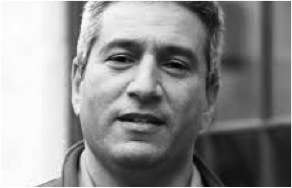A quick “hats off” to David Brancaccio and NOW on PBS for their well-researched and informative documentary on what Denmark is doing to attain energy independence and get off oil by building a version of the Renewable Electron Economy that is suitable for their resource base.
You can view the 23 minute show here:
http://www.pbs.org/now/shows/544/index.html
This installment of NOW does a great job of connecting Denmark’s historical dependence on other countries for energy and their current drive to build renewable energy and electric vehicle infrastructure. Denmark is one of the first countries/regions to work together with Better Place’s electric vehicle infrastructure.
While the show does a great job in tracing the policy environment which is unusual for a technology focused story, it does miss that Denmark used a feed-in tariff for wind in the 1990’s to jump-start the Danish industry.
Furthermore, I believe this show should be required viewing for all policymakers who will be attending COP15 or who are currently deliberating about climate legislation in the US Congress, because it is an example of how “things actually get done” in the area of emissions cuts. There is NO MENTION of cap and trade or emissions trading. The sole request of the CEO of DONG Energy is that out of COP15 that a (preferably high) price on carbon emerges.
Furthermore, the piece shows the people of Denmark moving quite rapidly (relative to the US at least) towards a much more energy efficient and cleaner energy economy over the past 20 years and into the near future by the application of what might called “Energy (and now Climate) Keynesianism”. It is no mystery that the Western Europeans have taxed petroleum-derived fuels heavily to, among other uses, build and maintain public transportation. What the NOW piece shows is that Danish tax policy is designed to relieve congestion, reduce oil dependence, and now to support the growth of renewable energy by bringing in more electric vehicles and therefore more energy storage.
While those readers who are convinced that a “carbon price = cap and trade” or “carbon policy = cap and trade” will not be persuaded or will miss the signs, what the NOW episode shows that a truly conservative in the best senses of the word climate policy is a “Climate (and Energy) Keynesianism” with an international carbon price that is a dollar/euro/yen/renminbi amount. We know that we can shape energy use and generation activities by tax policy and by incentives for private development of clean energy generators (feed-in tariffs). As I have been documenting here in my series on Cap and Trade, we have many very good reasons to doubt with its 12 year history of middling results and expansive bureaucracy that the twisted emissions trading policy will be as effective. Furthermore it is simply a political end run around the obvious “Climate Keynesian” solution, where government’s and business’s roles are differentiated and validated. Cap and trade will interfere with or obscure the benefits of Climate Keynesianism.
Image source: http://www.flickr.com/photos/23065375@N05/2236367463/
Original Post: http://greenthoughts.us/2009/11/15/denmarkree/




